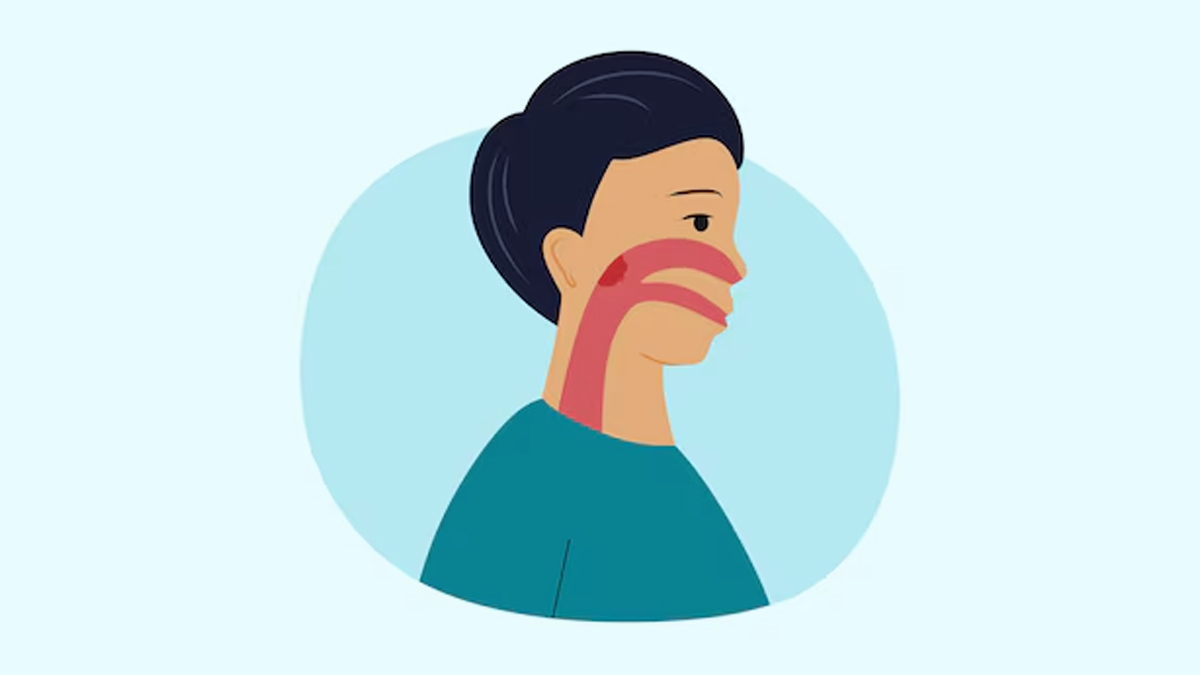
Enlarged adenoids in children is a common issue, and can significantly impact their health and daily lives. Nestled at the back of the nasal passage, adenoids are part of the immune system, helping to trap harmful bacteria and viruses. However, when they become swollen, often due to infections or allergies, they can cause breathing difficulties, snoring, and recurrent ear infections.
Table of Content:-
Understanding the symptoms, causes, and treatment options for enlarged adenoids is crucial for parents seeking to ensure their child's well-being. This article talks about the intricacies of enlarged adenoids, providing essential insights and guidance for managing this condition effectively.
To understand enlarged adenoids in children, OnlyMyHealth team spoke to Dr Tanushri Mukherjee Consultant – Neonatologist and Paediatrician at Cloudnine Group of Hospitals, Malad, Mumbai.
Explaining adenoids, Dr Mukherjee said, “They are small masses of lymphatic tissue located at the back of the nasal cavity. They play a role in the immune system, helping to trap and fight off infections. However, adenoids can sometimes cause health issues, especially in children.”
According to WebMD, “Even though adenoids help filter out germs from your body, sometimes they can get overwhelmed by bacteria and become infected. When this happens they also get inflamed and swollen.” It also states that enlarged adenoids are most commonly seen in children but can sometimes affect adults as well.
Also read: Wheezing In Children: What Could It Possibly Mean?
Symptoms of Enlarged Adenoids in Children

Enlarged adenoids can cause various symptoms. Dr Mukherjee helped us list down some common symptoms.
- Breathing Difficulties: Children may breathe through their mouth more frequently, especially at night.
- Snoring: Enlarged adenoids can lead to noisy breathing and snoring during sleep.
- Sleep Apnea: In severe cases, children may experience pauses in breathing during sleep.
- Nasal Congestion: Constant nasal congestion without a runny nose.
- Ear Infections: Frequent ear infections or fluid buildup in the middle ear.
- Sore Throat: Persistent sore throat or discomfort.
- Voice Changes: A nasal-sounding voice.
Causes of Enlarged Adenoids
Adenoids can become enlarged due to several reasons, such as:
Infections: Recurrent infections, including colds and sore throats, can cause adenoids to swell.
Allergies: Allergic reactions can lead to inflammation of the adenoids.
Genetics: Some children may naturally have larger adenoids.
Chronic Sinusitis: Ongoing sinus infections can contribute to adenoid enlargement.
Diagnosis

According to Dr Mukherjee, adenoid problems are typically diagnosed through a physical examination. The doctor may use the following methods:
Endoscopy: A thin, flexible tube with a light and camera (endoscope) is inserted through the nose to examine the adenoids.
X-rays: Imaging tests can provide a view of the adenoids.
Medical History: A review of the child's symptoms and medical history.
Treatment Options

When asked about the treatment, Dr Mukherjee said, “Treatment for enlarged adenoids depends on the severity of symptoms and the underlying cause.” Options include:
Medications: Antibiotics for infections, nasal steroids for inflammation, and antihistamines for allergies.
Home Care: Encouraging the child to drink plenty of fluids, using a humidifier, and ensuring good sleep hygiene.
Surgery (Adenoidectomy): In cases where symptoms are severe or persistent, surgical removal of the adenoids may be recommended. This procedure is usually quick and performed under general anaesthesia.
Post-Surgery Care
If adenoidectomy is performed, post-surgery care includes:
Rest: Adequate rest and limited physical activity for a few days.
Pain Management: Over-the-counter pain relievers as recommended by the doctor.
Hydration and Soft Foods: Encouraging fluid intake and offering soft, easy-to-swallow foods.
Conclusion
Understanding the symptoms, causes, and treatment options for enlarged adenoids in children is crucial for timely and effective management. If you suspect your child has issues with their adenoids, consult a healthcare professional for a proper diagnosis and treatment plan.
Also watch this video
How we keep this article up to date:
We work with experts and keep a close eye on the latest in health and wellness. Whenever there is a new research or helpful information, we update our articles with accurate and useful advice.
Current Version